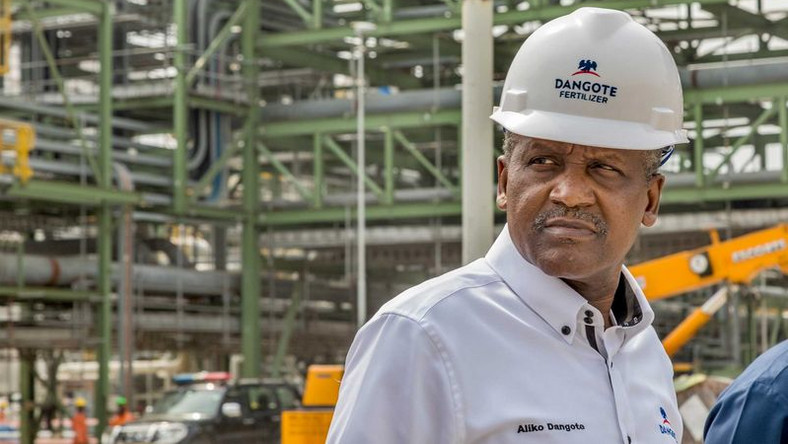A piece of equipment that is essential to process crude oil for Dangote refinery is now on the way to Nigeria from China.
The 650,000 barrel-per-day refinery being built in Lagos is set to be Africa’s largest and could metamorphose the country from an importer of petroleum products to a net exporter.
“On July 29, the world’s largest atmospheric tower built by Sinopec slowly left a wharf in Ningbo. Following the Maritime #SilkRoad, it will travel to #Nigeria and be installed at the world’s biggest single-train facility – Nigeria’s Dangote Refinery,” Sinopec revealed in a tweet.
For the type of refinery the company is building, the atmospheric tower is the primary unit processing crude oil into fuels, according to a Citac analyst, Jeremy Parker. Reuters reported that it would likely take at least a month to reach Lagos.
The President, Dangote Industries Limited, Aliko Dangote, who built his fortune on cement, said last year that he planned to finish building the $12-$14bn refinery in 2019 and to start production in early 2020.
Most analysts and observers said the ambitious project would take longer in order to begin pumping out fuels such as diesel and petrol, according to Reuters.
“This is a major milestone, but there is still much work to be done, both in terms of sourcing the other units and interconnection at the site,” Parker said of the atmospheric tower shipment.
Citac expects the refinery to start producing fuels in 2023.
Dangote Industries said in February this year that it had so far awarded $368m worth of contracts to 120 local contractors for its refinery and petrochemical project as part of its contribution to the Nigerian content development initiative.
The Group Executive Director, Strategy, Portfolio Development and Capital Projects, DIL, Mr. Devakumar Edwin, noted that the refinery would lead to significant skills transfer and technology acquisition opportunities in the country.
He said the Dangote refinery could meet Nigeria’s requirement of all liquid products, such as petrol, diesel, kerosene and aviation fuel, and would have a surplus of each of the products for export.
He noted that the refinery had been designed to process a variety of light and medium grades of crude and produce extremely clean fuels that could meet the Euro V specification.
Sign in
Welcome! Log into your account
Forgot your password? Get help
PRIVACY POLICY PAGE
Password recovery
Recover your password
A password will be e-mailed to you.












